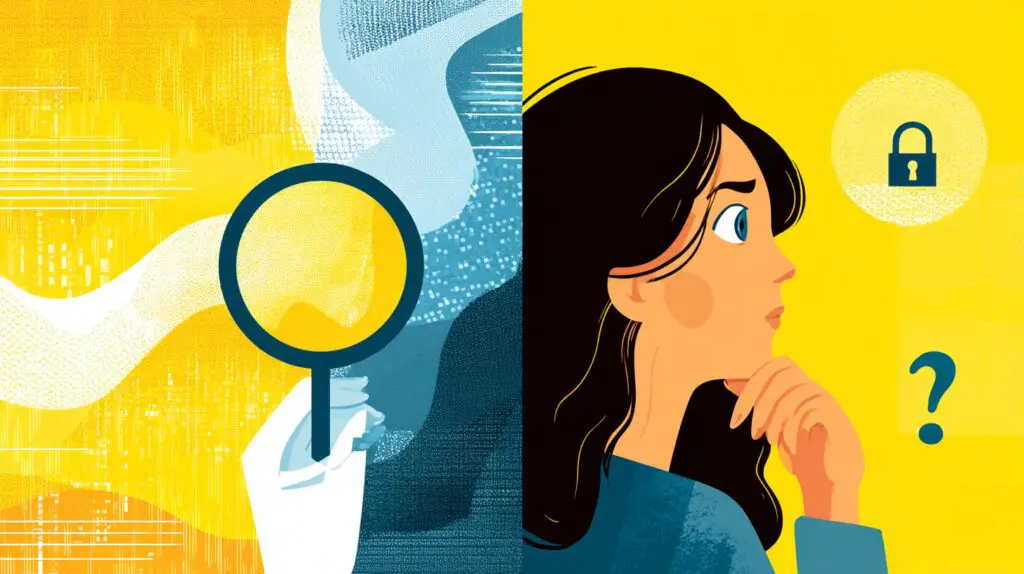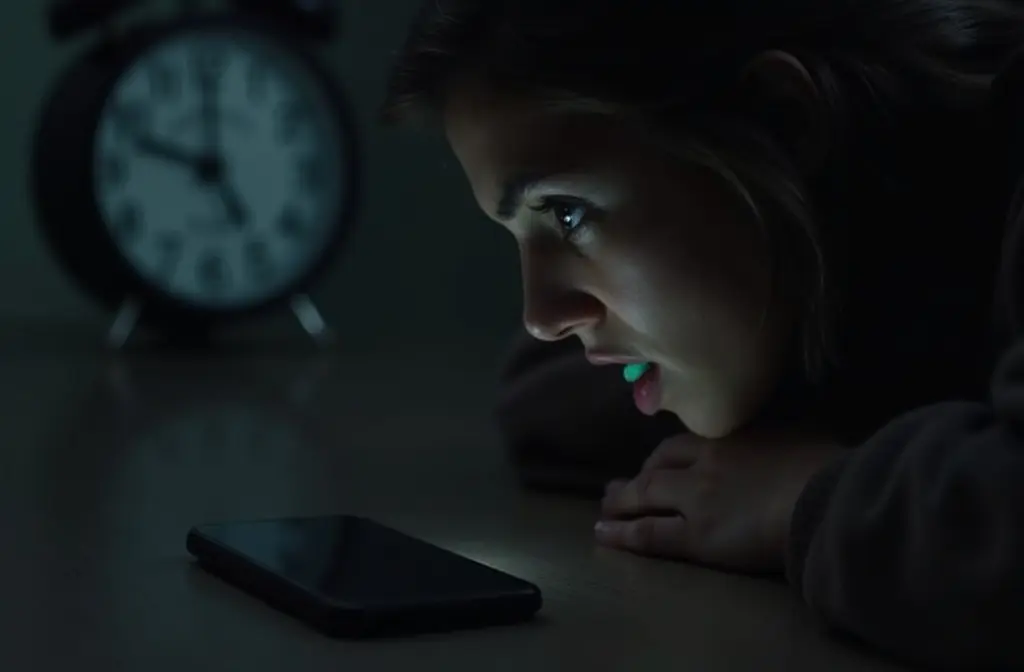You know, this whole topic of online background checks… it’s definitely one of those things that feels a bit weird to talk about, right? Kind of sticky. On one hand, knowledge is power, especially when it comes to feeling safe – which, let’s be honest, is often on our minds. But then there’s that nagging feeling… where’s the line? When does trying to be safe turn into plain old snooping, and can you even trust what you find?
For women trying to figure out everything from who to date to who to hire to help around the house, the question of whether to run one of these checks keeps coming up. And honestly? It’s complicated. There isn’t a simple yes or no. So, let’s try to unpack the 13 Pros & Cons Women Need to Know: Online Background Checks, looking at it from different angles.
What Are Online Background Checks, Really?
So, before we jump into the good and the bad, what are we even dealing with here? Essentially, these are online services – some free (usually basic), many you pay for – that dig through public records and sometimes other databases to build a picture of someone. Think potential criminal records, maybe marriage or divorce info, where they’ve lived, financial troubles like bankruptcy – sometimes even social media stuff, depending on how deep the service goes.
People use them for all sorts of reasons: getting a vibe check on a potential date, screening tenants, looking into business partners, or just trying to verify who that person you’re hiring for childcare actually is. It sounds straightforward on paper, but the reality? Often a lot messier.
The Upside: Potential Pros for Women Using Online Background Checks
Okay, so why do people even consider clicking that search button? There are definitely reasons, and some really hit home, especially when you’re thinking about things from a woman’s perspective.
- That Gut Feeling About Safety: This is usually number one. Meeting someone new, especially online? A quick check might throw up serious red flags – maybe a history of violence or restraining orders. It’s absolutely not a magic shield, let’s be clear, but it can feel like one useful tool in the safety toolbox.
- Finding Some Peace of Mind (Maybe): Hiring a babysitter? A caregiver for your parents? Even just a contractor to fix the leaky sink? Knowing they don’t have a glaring criminal history can really dial down the anxiety. I remember a friend wrestling with hiring a handyman – she felt weird doing it, but ran a check anyway. Found nothing concerning and just breathed easier, you know?
- Just Checking the Story: Is the person you met online actually who they claim to be? A check could help confirm basic stuff – name, maybe past addresses, even if they’re married when they said they weren’t. It can help spot someone who’s actively trying to deceive you.
- Dodging Scams and Shady Deals: If you’re getting into anything involving money, or even dealing with those too-good-to-be-true online romances, a check might uncover things like major debts, bankruptcies, or other signs that scream “Run!”
- Feeling a Bit More in Control: Sometimes, just having more information – even if you know it might not be perfect – can feel empowering. It lets you make a decision, whether it’s agreeing to that second date or hiring someone, feeling like you had something concrete to go on.
- They’re Right There and Quick: Let’s be real, part of the appeal is that these services are often easy to use and fast. You don’t need a trench coat and magnifying glass; usually just a name and maybe a city gets you started. The idea of instant answers is appealing.
- Confirming (or Questioning) Your Intuition: Ever get that weird vibe about someone but can’t explain why? Sometimes you have that nagging feeling. A background check might bring something real to light that explains it. Or, interestingly, it might come back totally clean, making you pause and think, “Okay, what else might be bothering me here?”
The Downside: Potential Cons and Cautions for Women
Alright, let’s flip the coin. Because using these checks? It’s definitely not all sunshine and easy answers. There are some serious downsides and ethical knots to untangle.
- Accuracy Can Be Shockingly Bad: Seriously, this is a huge one. The databases these services use? They can be outdated, incomplete, or just flat-out wrong. Getting people with similar names mixed up happens all the time. You could be reading dirt on the wrong John Smith entirely and making judgments based on bad info. I ran one on myself once for kicks – some of the stuff it pulled up was laughable, totally unrelated to me.
- That Creepy, Invasive Feeling: There’s just no getting around it sometimes – digging into someone’s past without them knowing feels… kind of icky, doesn’t it? How would you feel if someone did it to you? It really makes you think about privacy and boundaries, especially when you’re just getting to know someone.
- The Danger of False Security: This one’s critical. A “clear” check does not mean someone is safe or decent now. It only reflects certain things from the past that actually made it into a public record. Plenty of harmful behaviour never gets recorded anywhere official. Relying too much on that check might make you ignore your gut or actual red flags happening right in front of you.
- Cost vs. What You Actually Get: Sure, some basic searches are free or cheap, but they’re often super unreliable. The more detailed, potentially more accurate ones? They cost money. So you have to ask, is it worth paying? And even then, how much do you trust what you paid for? It’s a gamble.
- Getting Tangled in Legal Stuff: This is especially true if you’re using checks for “official” reasons like hiring someone (even for your home) or renting out property. In the US, for example, you must comply with laws like the Fair Credit Reporting Act (FCRA), which involves getting consent and following specific steps. Even outside the US, similar principles about fair use often apply. Using info improperly can lead to real legal headaches.
- The Emotional Rollercoaster & Reading Tea Leaves: So you run the check… now what? Finding something negative, even small stuff, can spike your anxiety. Finding nothing might not even calm you down if you were already suspicious. And records rarely give you the full story – an old arrest might not have led to a conviction. You end up trying to interpret incomplete data, which can be stressful and potentially unfair.

Navigating the Gray Areas: Things to Keep in Mind
So, considering all these pros and cons, where does that leave us? It’s rarely a clear path.
- Know It’s Not Gospel: Never, ever treat an online background check like the absolute truth. Think of it as one possible clue, potentially flawed, in a larger puzzle.
- Think About Why: Are you checking someone you met for coffee, or someone who’ll be alone with your kids? Your reason influences how you might approach it and how much weight you give it.
- Check Your Ethics (and the Law): Be aware of legal rules if you’re hiring or renting. And always take a moment to think about the ethical side – how does this action sit with your own values?
- Don’t Ignore Your Gut: A clean check shouldn’t make you ignore that persistent feeling that something’s off. Your intuition is data too! Likewise, don’t let one old, minor blip on a record automatically outweigh tons of positive, real-world interactions (unless it’s a serious safety issue, obviously).
- Remember, It Goes Both Ways: In this digital age, information about you might be floating around in these databases too.
Conclusion for Pros & Cons Women Need to Know: Online Background Checks
Look, deciding whether or not to use an online background check is super personal. There’s no single right answer that fits everyone or every situation. It really comes down to weighing the potential for increased safety against the very real risks of inaccuracy, privacy concerns, and that dangerous false sense of security. Hopefully, thinking through these 13 Pros & Cons Women Need to Know: Online Background Checks gives you a better handle on making that choice for yourself. It’s about navigating complex situations with as much awareness as possible, using all the tools you have – online resources (used cautiously!), what you observe in the real world, maybe input from people you trust, and always, always listening to your own judgment. It’s not about finding perfect answers online, because honestly, they’re rarely there.
Frequently Asked Questions
What final advice is there for women considering online background checks?
Women should view online background checks as one tool among many, not definitive proof of character or safety. It’s important to rely on instincts, gather information from diverse sources, respect privacy, and use checks cautiously to make informed decisions without overtrusting incomplete or flawed data.
How can women navigate the ethical and legal considerations of online background checks?
Women should remember that these checks are not foolproof and should be used as a part of a broader judgment. They need to be aware of laws such as the FCRA that regulate use, obtain proper consent, and consider their personal ethics and privacy boundaries when conducting checks.
What are the main benefits of using online background checks for women?
The benefits include gaining a sense of safety by identifying red flags, verifying someone’s identity, confirming details they provide, avoiding scams, feeling more in control with more information, quick access to data, and validating or raising doubts about intuition.
What risks or drawbacks should women be aware of when using online background checks?
Risks include the potential for inaccurate or outdated information, invasion of privacy, false security leading to complacency, costs associated with detailed reports, legal considerations, and the possibility of distress from incomplete or negative findings.
What are online background checks and how do they work?
Online background checks are services that compile information from public records and databases to provide details about an individual, such as criminal history, addresses, financial troubles, and social media activity. They are used for various reasons like vetting potential dates, tenants, or employees, but their accuracy can vary.





